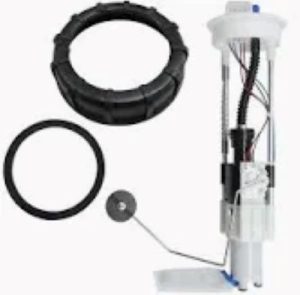The causes that can eventually lead to fuel pump leaks are worn-out seals, cracked housing, and degraded fuel lines. A typical root cause for fuel pump leak comes from the wear and tear on the worn-out seals and gaskets, which are crucial in maintaining tight sealing to avoid fuel leakage. These seals degrade over time due to exposure with fuel, heat, and pressure that will create small gaps where fuel can leak. Industry experts note that the seal in an older fuel pump may wear faster once a vehicle frequently operates in extreme temperatures.
It could also be due to a cracked fuel pump housing. The fuel pump housing is normally made from plastic or light metals and is prone to cracks, which may be caused by high impact or pressure applied to it. Such examples include fuel systems normally operating within the pressure range of 35 to 65 PSI, and are subject to stress from housing fluctuations or pressure, or if the pump often runs on low fuel. These tiny initial cracks gradually increase, causing an even bigger leak. Bosch being a leading fuel technology company says, "Even minor cracks can cause a leak and loss of efficiency for poorer engine performance."

Fuel line connections around the pump could also, after some time, become loose especially when the vehicle has covered considerable mileage. Vibration from driving, combined with the natural settling of components, can weaken these connections and they leak. The fuel which has escaped around the pump area can often be prevented by making sure all the connections are tightened. Regular inspections are recommended, as tightening loose connections may cost little to nothing but prevent the high costs of repairs associated with larger leaks.
The fuel ethanol-blended fuels, such as E10 or E85, is also known to raise the risks of leaks in fuel pumps that are not specifically built for ethanol. The presence of ethanol corrodes some rubber and plastic components, thus wearing them down and making them fragile in the fuel system. Fuel pumps regularly working with ethanol will have a considerably shorter lifespan; in fact, this can record 20-30% more potential wear against those using purely gasoline, an automotive study on ethanol impact says.
Replacing the seals or using a high-quality Fuel Pump made from durable, ethanol-compatible materials may help avoid future leaks for those drivers who have fuel odors or are able to visually see leaks. If you do monitor your fuel system's health and find little things to take care of early on, that will go a long way toward saving your fuel pump from leaks, besides preserving performance and safety for your vehicle.